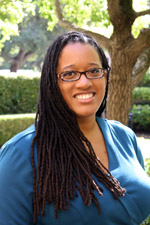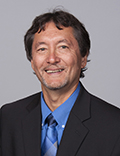Retention data for CEHD’s 2013 first-year cohort show a 95.6% rate of retention from first to second year. This is the second highest rate of retention at the University, slightly below the Carlson School of Management’s 97% rating, and tied with the College of Science and Engineering’s 95.6% retention rate.
CEHD’s 2013 first-year cohort was part of the college’s First Year Experience, housed within the Department of Postsecondary Teaching and Learning. CEHD’s First Year Experience integrates academic and social engagement opportunities to nurture the foundational skills necessary for success at the University.
“Our Common Book events and First Year Inquiry course, in conjunction with CEHD Reads, are examples of innovative programming that leads to high retention rates,” says Kris Cory, director of the First Year Experience and senior teaching specialist in the Department of Postsecondary Teaching and Learning.
By exploring the question: “How can one person make a difference?” within the context of CEHD Reads, the First Year Inquiry course transforms the personal experience of reading into a collaborative, rich conversation that span classrooms, cultures and academic disciplines, and culminates with an on-campus event featuring the book’s author.
“For many students, this is their first experience meeting a book author. The event expands their perspective around why stories are told and how books can make a difference in reframing one’s views,” explains Cory.
This year’s Common Book includes two public events:
On Monday, November 10, students will meet and speak with author Rebecca Skloot at a public discussion. This event is free and the public is welcome to join CEHD students and faculty to discuss the writing and impact of The Immortal Life of Henrietta Lacks. Event details.
On Friday, November 14, the Department of Postsecondary Teaching and Learning and the Center for Bioethics are co-sponsoring the Henrietta Lacks’ Legacy Panel Discussion. Dr. Ruth Faden, Director of Johns Hopkins Berman Institute of Bioethics, will be joined by two members of the Lacks’ family: Victoria Baptiste, Henrietta Lacks’ great granddaughter and Shirley Lacks, Henrietta Lacks’ daughter-in-law. Event details.




